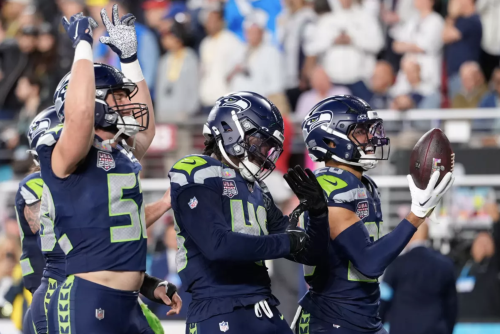This week, we cover a suit against a prominent CBD company. We also look into a newly developed method for pollen storage, the end to a lawsuit against the DEA, and a new call for the federal government to provide Coroanvirus aid to the cannabis industry.
Federal Trade Commission Sues Company Over Claims That Their Product Can Cure Cancer
The struggle between CBD companies and the federal government has been progressing for months. The Food and Drug Administration has been slow to make a ruling on CBD, which became federally legal in 2018.
As a result, CBD companies have to tow a vague line when marketing their products. Several companies have received formal warnings from the FDA regarding claims surrounding their products.
Now, it seems that the federal government is taking things a step further. Whole Leafs Organic, a California-based company, is on the receiving end of a federal lawsuit surrounding marketing language for their products.

The Federal Trade Commission asserts that WLO claimed its products not only could “target and eliminate” cancer cells but that one of its products could offer resistance to the novel Coronavirus.
Prior to the new lawsuit from the FTC, WLO received a warning from the FDA for similar infractions.
Scientists Have Discovered A New Method To Store Cannabis Pollen ‘Indefinitely’
With funding from the Candian government, a group of researchers discovered a new method of storing cannabis pollen long-term. The researchers also created a new pollen viability test that can gauge the potential efficacy of pollen.
Both of these discoveries will likely have a significant impact on the process by which cultivators strengthen strain genetics. Pollen is often used to force female plants into producing seeds with their buds. However, if the pollen is faulty, this process can often fail, costing both time and money.
With the researchers’ discoveries, the process of creating and preserving strains will be greatly improved. First, the new viability test will give cultivators confidence that their pollination procedures will succeed.
Second, the new “indefinite” storage method will allow for the preservation of certain strain genetics. All in all, these new discoveries are a promising sign for the future of cannabis cultivation.

DEA Settles Lawsuit Filed By Scottsdale Research Institute
Last month, Scottsdale Research Institute (SRI) filed a lawsuit against the Drug Enforcement Agency. In the suit, SRI claimed the DEA was delaying the approval of applications to grow cannabis for research purposes.
According to SRI, one of several entities that applied to provide cannabis to the feds for research purposes, they believed that the DEA was stalling the process due to the presence of a secret document. As such, they claimed the DEA was operating under a “secret law,” which is illegal under numerous federal mandates.
Because of the lawsuit, the DEA agreed to release a document that had, up until then, been kept secret. In the document, the Office of Legal Counsel told the DEA their cannabis procurement system was illegal under international law.
The law the DEA was violating is known as the Single Convention treaty. Under this law, governments must use a single federal agency to oversee the purchase and possession of cannabis for research purposes.
When the document was originally sent, these roles were split between the DEA and the National Institute on Drug Abuse.
Now, the DEA is saying it will address its international law violations. As a result, the DEA should soon start approving applications. As of now, the only entity providing the federal government with cannabis is the University of Mississippi.
The Call To Provide Coronavirus Aid To Cannabis Companies Continues

As Coronavirus takes its toll on the United States, the cannabis industry continues to face unique hurdles in staying afloat. Some states have declared cannabis companies as “essential businesses,” while others have forced such businesses to close down. Many dispensaries have made unforeseen transformations into delivery businesses, catering to widespread social distancing laws.
However, one issue has become a focal point in the cannabis industry’s struggle to face Coronavirus: federal aid. As COVID-19 causes extreme economic damage, the federal government has stepped in, offering multiple sources of aid to struggling businesses.
However, such forms of federal aid have been withheld from cannabis businesses, citing cannabis’ federal scheduling.
This decision has led to an uproar from entities within and outside of the cannabis industry. The most recent call for change came from a collective of over thirty cannabis companies and credit unions. In a letter to Congress, the collective demanded reform in federal relief that includes cannabis companies.
The collective suggested giving block grants to individual states, allowing them to allocate the funds as they see fit. Another suggestion was to amend the current Coronavirus aid eligibility requirements to include cannabis businesses.
As of yet, there has been little indication that the Small Business Administration will amend its policies.
State-Level Cannabis Decriminalization and Legalization Development

In past months, the spread of cannabis decriminalization and legalization progress throughout the United States has been at a fever pitch. This week, several states saw developments in cannabis legalization.
- The Governor of New Mexico expressed that passing cannabis legislation could have reduced Coronavirus’ economic impact on the state.
- Gov. Laura Kelly of Kansas stated that cannabis legislation in the state could be a possibility in 2020.
- Recreational dispensaries in Massachusetts will remain closed until at least May 18.
- Dispensaries in Nevada will now be able to give curbside service to clientele.
- A Montana judge killed an effort by activists to suspend signature gathering laws in the midst of the Coronavirus pandemic.
- A new medical cannabis bill is currently pending in North Carolina, one of 17 states with no cannabis access.
Coronavirus Updates In The United States

As COVID-19 continues its spread throughout the US, we will provide you with updates to keep you up to speed. We will continue to include these updates at the end of This Week In Weed until further notice.
Confirmed COVID-19 CASES In United States (As Of March, 22): 1,188,385
Confirmed COVID-19 DEATHS In United States (As Of March, 22): 68,600
- As social distancing continues, protests have erupted across the country calling for a loosening of restrictions.
- The US Prison system is experiencing a surge in Coronavirus cases.
- As pressure to reopen builds, several states are beginning to
- social distancing restrictions.
- China released a Lego-like animation mocking the United States’ response to the Coronavirus.
- Coronavirus stimulus was sent to healthcare providers that are currently facing criminal inquiries.
- Native American tribes are suing the treasury department over Coronavirus aid.
- 30,000,000 people have filed for unemployment since the beginning of the Coronavirus pandemic.
- The United States currently accounts for around a third of total global cases of Coronavirus.
- A North Carolina pug became the first US dog to test positive for Coronavirus.
- The CDC suggests that the United States death toll from Coronavirus may be far higher than currently reported.
- President Trump signed an executive order aimed at addressing a predicted US meat shortage.







